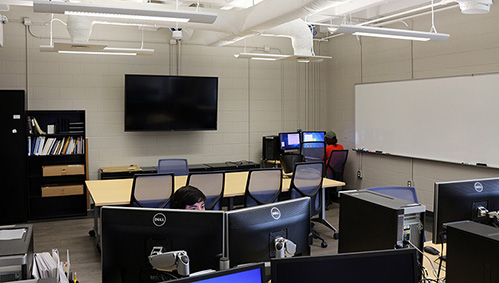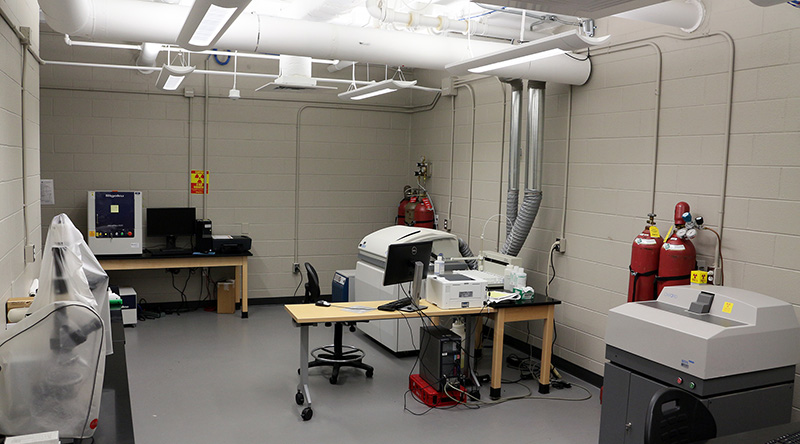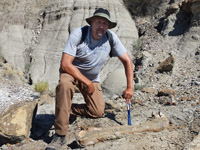Department of Geosciences
Facilities
Teaching Classrooms and Laboratories
The Department of Geosciences is home to four small to medium sized classrooms, one lecture hall, one upper division geology lab, and one general education geology lab. Collectively, these classrooms and laboratories seat almost 300 students. Each is equipped with internet access and digital projection technology. The upper division geology lab contains an extensive mineral, rock, and fossil teaching collection, as well as student petrographic and binocular microscopes.
Computer Lab
A twenty station student computer lab is available to all Geosciences majors. In addition to providing basic computer hardware and software access, the lab is used to teach computer-intensive courses such as Geographic Information Systems and Remote Sensing.
Geospatial Research Center
The Geospatial Research center, located in DSB 227, was started in 2011-12 by a $150,000 allocation from the Office of the University Provost. The lab is under the direction of Dr. Henrique Momm and Zada Law. The Geospatial Research Center serves as a regional and campus resource for GIS-based research and contract services.


Geochemistry Laboratories
Funded by grants from the National Science Foundation, the x-ray fluorescence spectrometer and inductively coupled plasma mass spectrometer laboratories serve as both instructional and research facilities. The labs are under the direction of Dr. Warner Cribb.
Common Spaces
Since moving from Kirksey Old Main to the renovated Davis Science Building, the department has gained several communal spaces for students to get together for study and socializing. One of these, ‘The Fishbowl’ has a mini-fridge and microwave for lunch.
Library Resources
Through the MTSU Walker Library, students have access to a comprehensive range of geosciences books, journals and electronic publications.
Follow Us!
Faculty Spotlight
Alan Brown:
"I did not start out in college thinking I would be a Geology major. In fact, I had little idea what a Geologist even was. It was my first class in Geology that ignited my love of Geology and Paleontology. I had a strong interest in Paleontology while in school but decided to focus instead on environmental geology because the job market was much better. After getting my Master’s degree I worked as an environmental consultant for 7 years.
Then, in 2005, I was hired as an instructor at Middle Tennessee State University. Once I started at MTSU my interest in Paleontology was rekindled. In the summer of 2009, I was invited to go on a dinosaur dig in Montana and I have returned to Montana to dig up dinosaurs every summer since. I volunteered at two museums in the area but they both closed. I then got together with a small group, and we decided to start a new museum. This museum is Earth Experience the Middle Tennessee Museum of Natural History in Murfreesboro, Tennessee, which opened in 2014. It is my passion and takes almost all my free time."
Contact Us
Mail address:
MTSU - Dept. of Geosciences
MTSU PO Box 9
Davis Science Building 241
Murfreesboro, TN 37132
Dr. Todd Moore, Department Chair
615-898-2379
Karen Wolfe, Executive Aide
615-898-2726






